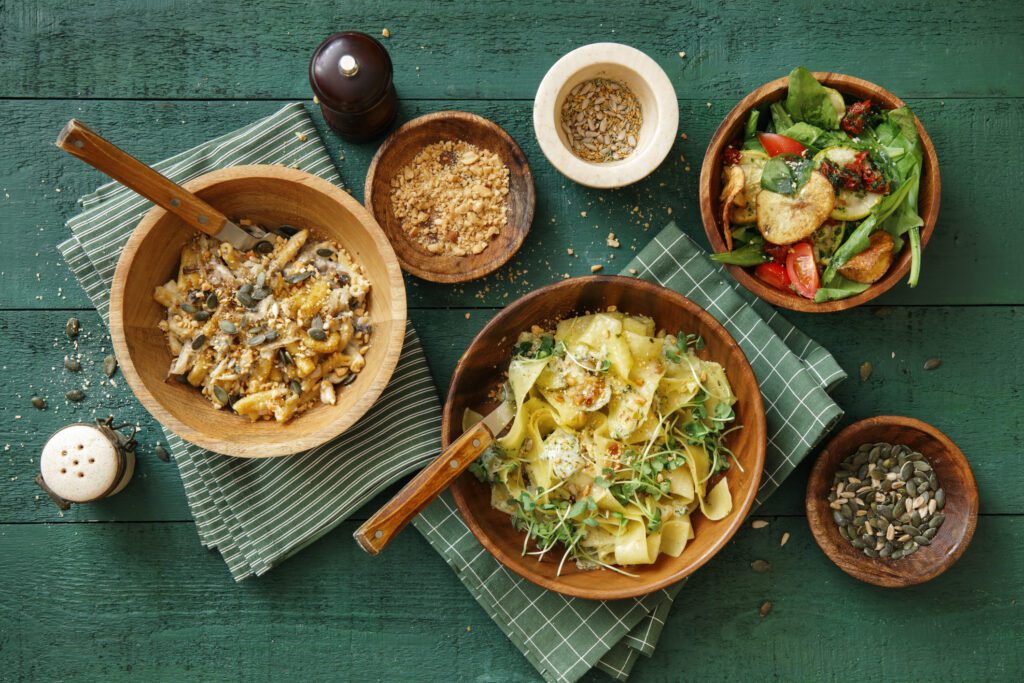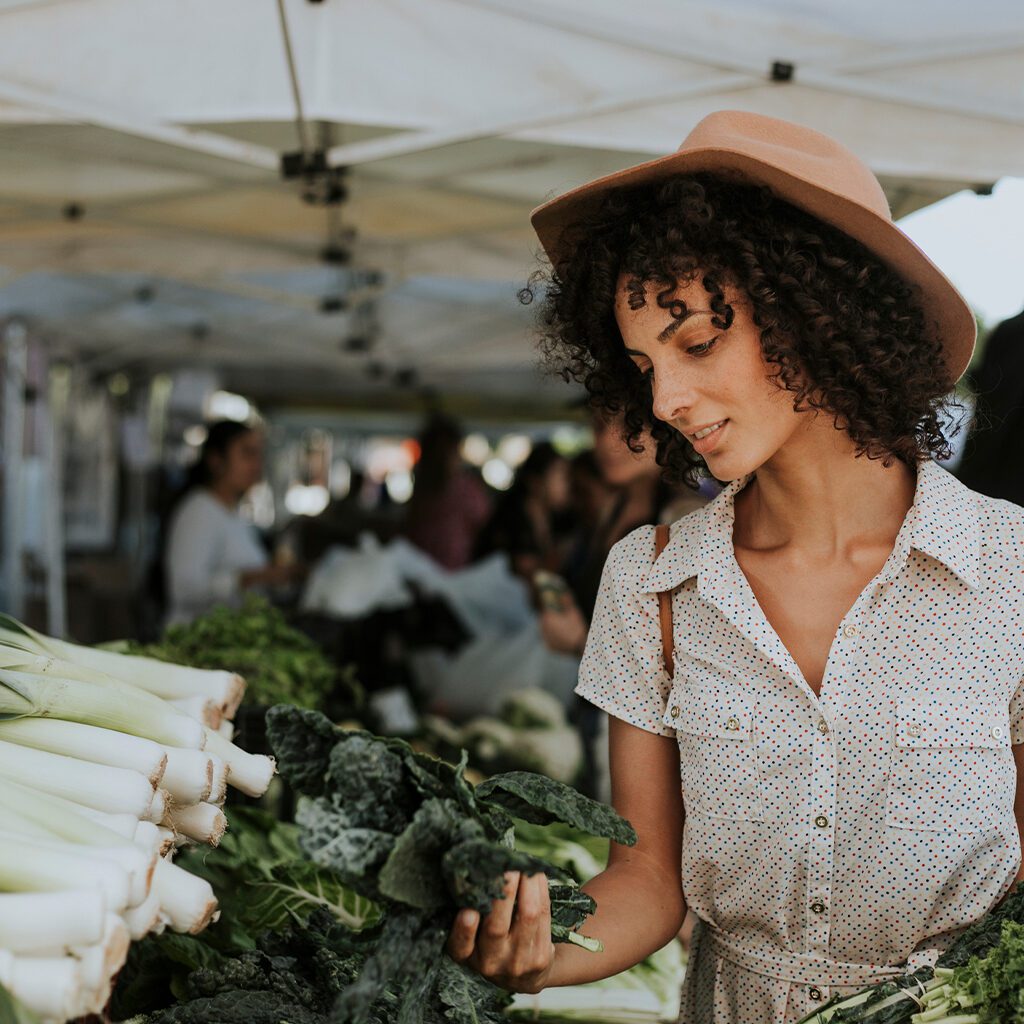Going vegan? Give it time.
Making the lifestyle change all at once can be overwhelming. Instead, cut back on animal products gradually, and incorporate more plant-based foods one by one. Pay close attention to how you’re feeling along the way. If you’re not feeling your best, it might not be the right diet for you.
You’ve heard of a vegetarian diet – no meat, fish, or poultry. But vegans take it a step further by cutting out all animal products. What’s the upside to this strict diet? Read on to find out its pros and cons.







Pros
An improved health potential
Vegan diets are cholesterol-free and low in saturated fat. If you’re at risk for chronic diseases such as heart disease or cancer, this could be an ideal diet for you. Just be sure to discuss it with your doctor before you take the plunge.
An increase in antioxidants
A vegan diet is full of antioxidant-rich foods like vegetables, fruits, beans, legumes, and more. Antioxidants are important because they have the ability to protect your cells from free radicals caused by a number of things including pollutants in the air such as tobacco smoke and radiation.
A lifestyle choice
Many people choose to adopt the vegan diet because of their love for animals and their desire for animals to live a humane life. In addition, vegan values include concern for the environment, as a vegan lifestyle often supports sustainable agriculture and reduces the carbon footprint associated with meat-producing operations.
Cons
Another reason to read food labels? A seemingly vegan food might just contain ingredients that aren’t suitable for a vegan diet. Take for example gelatin, which is derived from meat, and whey, which is derived from milk. Whey can be found in many granolas, breads, and more.
Sticking to a strict diet
In addition to not eating meat, fish, or poultry, vegans steer clear of any animal products and by-products. That includes honey, eggs, dairy, cosmetics derived from animal products, and more. If you choose to go vegan, you may have a hard time choosing from the menu when dining out.
Potential vitamin and mineral loss
There are vegan sources for most nutrients, but it might be a challenge to consume enough of them. Take iron and vitamin D for example. Vitamin D isn’t typically found in the vegan diet, but can be obtained through exposure to sunlight. When people think iron, they typically think meat. But beans and leafy greens are also good sources, and you can increase iron absorption by coupling them with foods that are rich in vitamin C. You’ll also need to supplement vitamin B12, which only occurs naturally in animal foods.
A lack of protein
A healthy diet should incorporate some form of protein into every meal. Since vegans forego typical protein sources like meat and eggs, they have to incorporate it through different means. If you’re thinking about going vegan, it’s time to stock up on plant-based protein such as soy, quinoa, lentils, and beans. And beware of overly-processed meat substitutes, which can be packed with sodium and preservatives. Check labels before opting for that frozen tofu burger!

